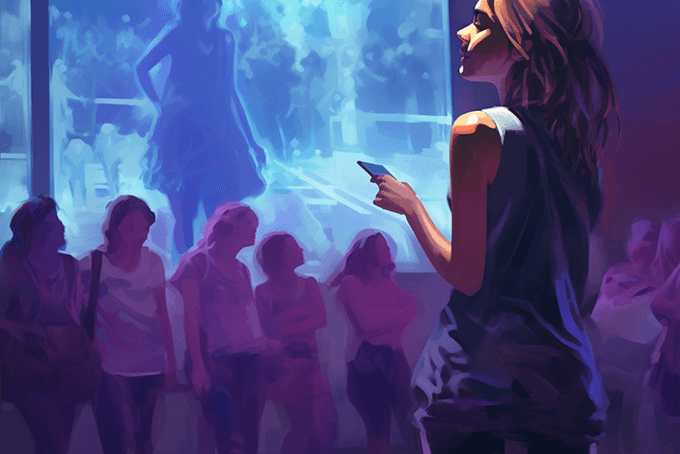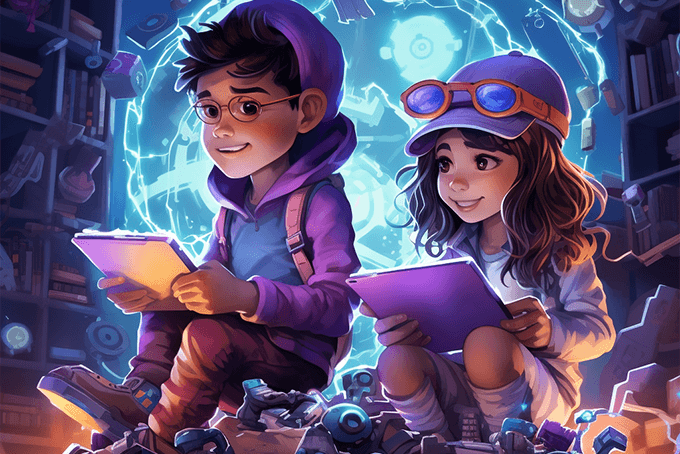Observational learning, also called social learning theory, occurs when an observer’s behavior changes after viewing the behavior of a model. An observer’s behavior can be affected by the positive or negative consequences–called vicarious reinforcement or vicarious punishment– of a model’s behavior.
Discussion
There are several guiding principles behind observational learning, or social learning theory:
- The observer will imitate the model’s behavior if the model possesses characteristics– things such as talent, intelligence, power, good looks, or popularity–that the observer finds attractive or desirable.
- The observer will react to the way the model is treated and mimic the model’s behavior. When the model’s behavior is rewarded, the observer is more likely to reproduce the rewarded behavior. When the model is punished, an example of vicarious punishment, the observer is less likely to reproduce the same behavior.
- A distinction exists between an observer’s “acquiring” a behavior and “performing” a behavior. Through observation, the observer can acquire the behavior without performing it. The observer may then later, in situations where there is an incentive to do so, display the behavior.
- Learning by observation involves four separate processes: attention, retention, production and motivation.
- Attention: Observers cannot learn unless they pay attention to what’s happening around them. This process is influenced by characteristics of the model, such as how much one likes or identifies with the model, and by characteristics of the observer, such as the observer’s expectations or level of emotional arousal.
- Retention: Observers must not only recognize the observed behavior but also remember it at some later time. This process depends on the observer’s ability to code or structure the information in an easily remembered form or to mentally or physically rehearse the model’s actions.
- Production: Observers must be physically and/intellectually capable of producing the act. In many cases the observer possesses the necessary responses. But sometimes, reproducing the model’s actions may involve skills the observer has not yet acquired. It is one thing to carefully watch a circus juggler, but it is quite another to go home and repeat those acts.
- Motivation: In general, observers will perform the act only if they have some motivation or reason to do so. The presence of reinforcement or punishment, either to the model or directly to the observer, becomes most important in this process.
- Attention and retention account for acquisition or learning of a model’s behavior; production and motivation control the performance.
- Human development reflects the complex interaction of the person, the person’s behavior, and the environment. The relationship between these elements is called reciprocal determinism. A person’s cognitive abilities, physical characteristics, personality, beliefs, attitudes, and so on influence both his or her behavior and environment. These influences are reciprocal, however. A person’s behavior can affect his feelings about himself and his attitudes and beliefs about others. Likewise, much of what a person knows comes from environmental resources such as television, parents, and books. Environment also affects behavior: what a person observes can powerfully influence what he does. But a person’s behavior also contributes to his environment.
How Observational Learning Impacts Learning:
Curriculum– Students must get a chance to observe and model the behavior that leads to a positive reinforcement.
Instruction– Educators must encourage collaborative learning, since much of learning happens within important social and environmental contexts.
Assessment–A learned behavior often cannot be performed unless there is the right environment for it. Educators must provide the incentive and the supportive environment for the behavior to happen. Otherwise, assessment may not be accurate.
Reading
Bandura, A. (1986). Social foundations of thought and action: A social cognitive theory. Englewood Cliffs, NJ: Prentice Hall.



